- 微信公眾號(hào)

政策解讀
- 微信小程序

快速擇校

政策解讀

快速擇校
Early in the age of affluence (富裕) that followed World War II, an American retailing analyst named Victor Lebow proclaimed, "Our enormously productive economy...demands that we make consumption our way of life, that we convert the buying and use of goods into rituals, that we seek our spiritual satisfaction, our ego satisfaction, in consumption... .We need things consumed, burned up, worn out, replaced and discarded at an ever increasing rate."
Americans have responded to Lebow's call, and much of the world has followed.
Consumption has become a central pillar of life in industrial lands and is even embedded in social values. Opinion surveys in the world's two largest economies—Japan and the United States—show consumerist definitions of success becoming ever more prevalent.
Overconsumption by the world's fortunate is an environmental problem unmatched in severity by anything but perhaps population growth. Their surging exploitation of resources threatens to exhaust or unalterably spoil forests, soils, water, air and climate.
Ironically, high consumption may be a mixed blessing in human terms, too. The time-honored values of integrity of character, good work, friendship, family and community have often been sacrificed in the rush to riches.
Thus many in the industrial lands have a sense that their world of plenty is somehow hollow—that, misled by a consumerist culture, they have been fruitlessly attempting to satisfy what are essentially social, psychological and spiritual needs with material things.
Of course, the opposite of overconsumption—poverty—is no solution to either environmental or human problems. It is infinitely worse for people and bad for the natural world too. Dispossessed (被剝奪得一無(wú)所有的) peasants slash-and-burn their way into the rain forests of Latin America, and hungry nomads (游牧民族) turn their herds out onto fragile African grassland, reducing it to desert.
If environmental destruction results when people have either too little or too much, we are left to wonder how much is enough. What level of consumption can the earth support? When does having more cease to add noticeably to human satisfaction?
1. The emergence of the affluent society after World War II .
A. led to the reform of the retailing system
B. resulted in the worship of consumerism
C. gave rise to the dominance of the new egoism
D. gave birth to a new generation of upper class consumers
2. Apart from enormous productivity, another important impetus to high consumption is______.
A. the people's desire for a rise in their living standards
B. the concept that one's success is measured by how much they consume
C. the imbalance that has existed between production and consumption
D. the conversion of the sale of goods into rituals
3. Why does the author say high consumption is a mixed blessing?
A. Because poverty still exists in an affluent society.
B. Because overconsumption won't last long due to unrestricted population growth.
C. Because traditional rituals are often neglected in the process of modernization.
D. Because moral values are sacrificed in pursuit of material satisfaction.
4. According to the passage, consumerist culture .
A. will not alleviate poverty in wealthy countries
B. will not aggravate environmental problems
C. cannot thrive on a fragile economy
D. cannot satisfy human spiritual needs
5. It can be inferred from the passage that .
A. human spiritual needs should match material affluence
B. whether high consumption should be encouraged is still an issue
C. how to keep consumption at a reasonable level remains a problem
D. there is never an end to satisfying people's material needs
參考答案:BBDDC
特別聲明:①凡本網(wǎng)注明稿件來(lái)源為"原創(chuàng)"的,轉(zhuǎn)載必須注明"稿件來(lái)源:育路網(wǎng)",違者將依法追究責(zé)任;
②部分稿件來(lái)源于網(wǎng)絡(luò),如有侵權(quán),請(qǐng)聯(lián)系我們溝通解決。

黨校在職研究生學(xué)費(fèi)能報(bào)銷(xiāo)嗎?學(xué)費(fèi)報(bào)銷(xiāo)與否由單位政策決定,無(wú)全國(guó)統(tǒng)一標(biāo)準(zhǔn):黨政機(jī)關(guān)多按50%-100%報(bào)銷(xiāo)(需與工作相關(guān)),國(guó)企多定額補(bǔ)貼+比例報(bào)銷(xiāo)(30%-80...
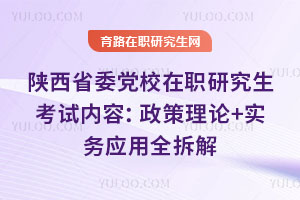
陜西省委黨校在職研究生考試為自主命題、自主招生,陜西省委黨校在職研究生考試內(nèi)容分兩類(lèi):公共科目(政治理論,必考)+專(zhuān)業(yè)科目(專(zhuān)業(yè)基礎(chǔ)+實(shí)務(wù)應(yīng)用,按所選專(zhuān)業(yè)設(shè)定)...
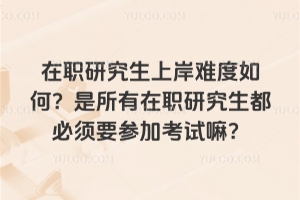
在職研究生上岸難度因報(bào)考方式不同而有差異。非全日制研究生需參加全國(guó)統(tǒng)考,通過(guò)率約30%;同等學(xué)力申碩先入學(xué)后考試,通過(guò)率達(dá)60%-70%。藥學(xué)在職研究生備考方法...
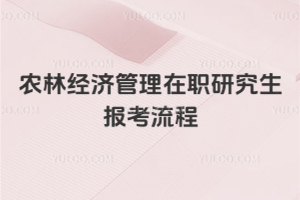
農(nóng)林經(jīng)濟(jì)管理在職研究生介紹農(nóng)林經(jīng)濟(jì)管理在職研究生是培養(yǎng)具有農(nóng)林經(jīng)濟(jì)管理專(zhuān)業(yè)知識(shí)和實(shí)踐能力的高級(jí)人才。專(zhuān)業(yè)特色農(nóng)林經(jīng)濟(jì)管理
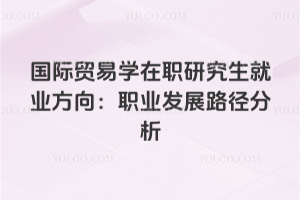
國(guó)際貿(mào)易學(xué)在職研究生就業(yè)方向主要包括外貿(mào)公司、跨境電商企業(yè)、政府部門(mén)、銀行金融機(jī)構(gòu)、跨國(guó)公司、國(guó)際物流公司、國(guó)際會(huì)展公司、咨詢(xún)公司、高等院校和科研院所等。這些領(lǐng)...
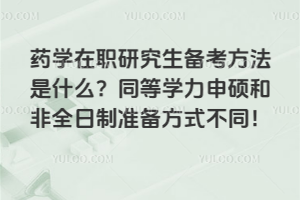
藥學(xué)在職研究生備考方法因報(bào)考類(lèi)型不同而有所差異。同等學(xué)力申碩免試入學(xué),備考重點(diǎn)在課程學(xué)習(xí)和申碩考試;非全日制需要參加全國(guó)統(tǒng)考,備考重點(diǎn)在初試和復(fù)試。考生應(yīng)根據(jù)自...
在職研究生
入學(xué)考試
在職研究生
有用嗎
在職研究生
如何報(bào)考
在職研究生
報(bào)考流程
在職研究生
報(bào)名條件
在職研究生
學(xué)費(fèi)一覽表
在職研究生
考哪些科目
在職研究生
怎么報(bào)名
在職研究生
一年考幾次
評(píng)論0
“無(wú)需登錄,可直接評(píng)論...”